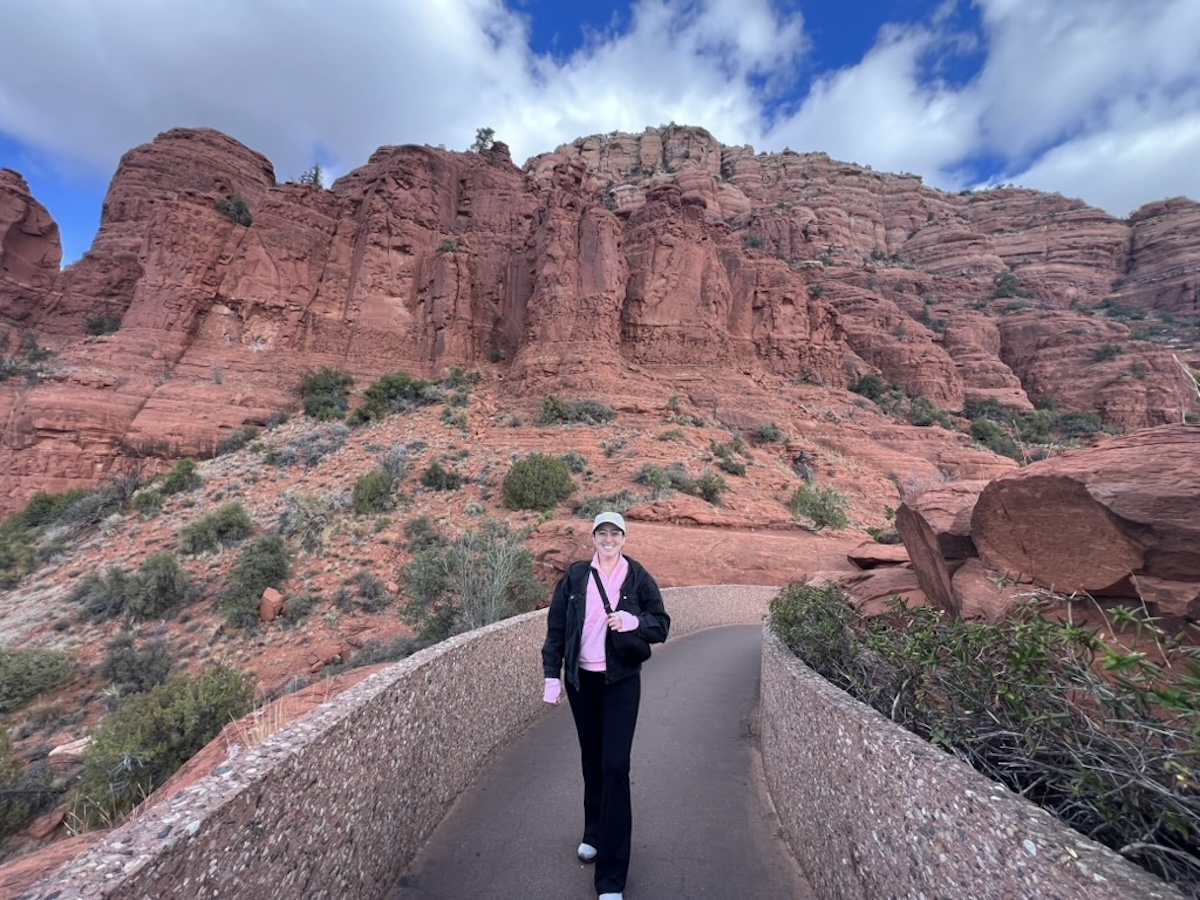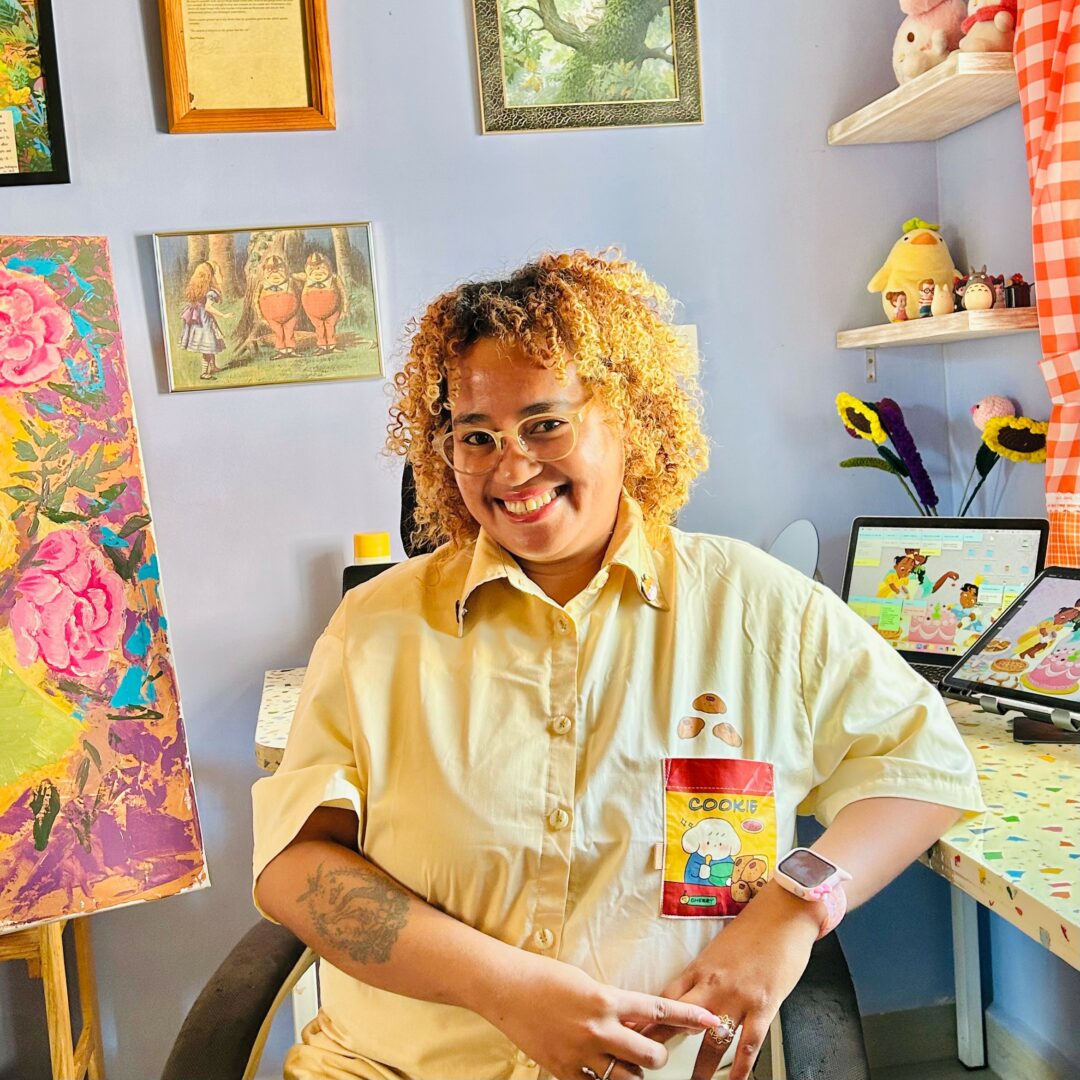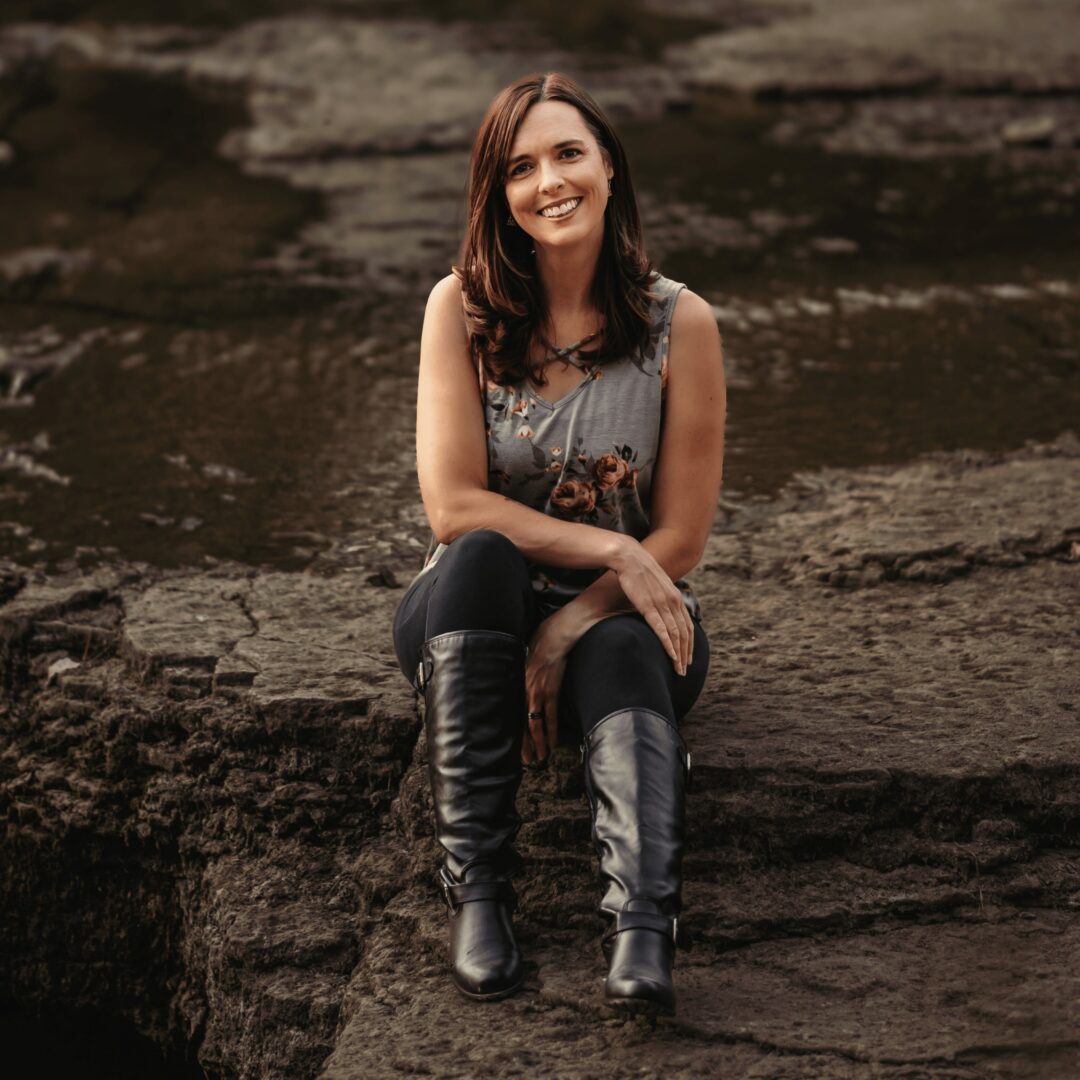We caught up with the brilliant and insightful Leah Nadeau a few weeks ago and have shared our conversation below.
Leah, sincerely appreciate your selflessness in agreeing to discuss your mental health journey and how you overcame and persisted despite the challenges. Please share with our readers how you overcame. For readers, please note this is not medical advice, we are not doctors, you should always consult professionals for advice and that this is merely one person sharing their story and experience.
At the age of 7 I was diagnosed with ADHD, and at age 9 Obsessive Compulsive Disorder (OCD). As an adult, I’ve struggled with finding balance between my passion for my career and avoiding burnout. Chronic overwhelm caused by ADHD strongly affects me by manifesting as intense anxiety when faced with numerous tasks to handle, or if I’ve taken on a large workload in a small amount of time. Overworking myself and neglecting self-care can lead to panic attacks and bouts of extreme exhaustion.
In these times, I cope by forcing myself to rest. As a busybody, it’s hard, but sometimes what is best is to stop posting on social media and binge-watch a show for a couple of days. I limit all social interactions to recharge. After that, I start painting again to help regulate my thoughts. I paint because I can express myself without words.
Art will always represent my voice, my therapy, and my source of resilience.
Appreciate the insights and wisdom. Before we dig deeper and ask you about the skills that matter and more, maybe you can tell our readers about yourself?
My passion in life is my artistic career, and spending time with my rescue dog Gus, friends, and family. My dream for the future is to one day have a storefront gallery with my studio space attached, where I welcome customers to see my work on a regular basis.
I’m always asked what my big career plans are, and although I’d ideally love to have my work internationally recognized someday and displayed in museums, what I have right now is amazing. I get to paint and sell my artwork via the Internet to people who love art, and that’s how I pay my bills. Continuing to be able to make a living selling my art full-time is a dream that I want to keep on living.
In 2021 I did my first public art project, I painted a giant heart for the city of Grosse Pointe which is on permanent display, and I’d love to be doing large-scale murals in the future. My hope is by 2025 I have several murals painted nationally, so keep a lookout for that.
You can keep up with my creative journey on Facebook or Instagram, I’m very active on the platforms.
Looking back, what do you think were the three qualities, skills, or areas of knowledge that were most impactful in your journey? What advice do you have for folks who are early in their journey in terms of how they can best develop or improve on these?
Studies: I went to the University of San Francisco and graduated with a degree in Media Studies, which I think really impacted how I handle my art business. Not only did I go to school when social media was in its prime, but I was able to study it. I use this knowledge every single day in my art business because I use my social media accounts to sell my artwork and point customers in the direction of my website. If you’re early in your art journey, getting on social media is a game changer and is essentially a visual resume.
Self-Confidence: When I was a teen I was sent to a confidence-building academic camp that helped me be more comfortable in my own skin. I think this experience lead me to dive head-first into my art business when the time came, because I believed in myself. My biggest recommendation for artists when they first start out is to fake it ’til you make it. Offer your art for sale like you’re selling a fancy yacht!
Film Lover: I grew up escaping into movies as a kid and still do as an adult. I went to grad school and studied film theory in 2014 and my studies lead me to see the world through a different lens because of it. I think my interest and studies in film give me a unique perspective and you can see it in my art style. Hone in on what you love and incorporate it into your work.
Before we go, any advice you can share with people who are feeling overwhelmed?
As a sufferer of chronic overwhelm, that is my natural state. My biggest advice is to look into spoon theory. This is essentially a metaphor for your emotional and physical limitations per day. A normal person without mental illness or chronic pain may have unlimited spoons, while someone with pain or mental illness has only 10. You need to ration out each spoon per day to make it to the end without feeling overwhelmed.
Sometimes I have to say ok, today I’m not doing ANYTHING and if by 3 or 4 pm I feel like I have a few spoons left maybe I will pick one task that I need to do this week and tackle it. Sometimes I have to say, I have no spoons left, and that is ok.
I’m fortunate enough to have a job that allows me to decide that some days I need to just recover from overwhelm.
Contact Info:
- Website: leahnadeau.com
- Instagram: instagram.com/leahnadeau.art
- Facebook: facebook.com/leahnadeau.art
- Linkedin: https://www.linkedin.com/in/leahnadeau/
- Youtube: https://www.youtube.com/c/LeahNadeau?app=desktop






Image Credits
Olivia McKay




